第63章 XX(3)
Two months had passed since then, and he was still the paid secretary. He had contrived to let the aide-de-camp feel that he was too deficient in humour to be worth exchanging glances with; but even this had not restored his self-respect, and on the evening in question, as he looked about the long table, he said to himself for the hundredth time that he would give up his position on the morrow.
Only--what was the alternative? The alternative, apparently, was Coral Hicks. He glanced down the line of diners, beginning with the tall lean countenance of the Princess Mother, with its small inquisitive eyes perched as high as attic windows under a frizzled thatch of hair and a pediment of uncleaned diamonds; passed on to the vacuous and overfed or fashionably haggard masks of the ladies next in rank; and finally caught, between branching orchids, a distant glimpse of Miss Hicks.
In contrast with the others, he thought, she looked surprisingly noble. Her large grave features made her appear like an old monument in a street of Palace Hotels; and he marvelled at the mysterious law which had brought this archaic face out of Apex City, and given to the oldest society of Europe a look of such mixed modernity.
Lansing perceived that the aide-de-camp, who was his neighbour, was also looking at Miss Hicks. His expression was serious, and even thoughtful; but as his eyes met Lansing's he readjusted his official smile.
"I was admiring our hostess's daughter. Her absence of jewels is--er--an inspiration," he remarked in the confidential tone which Lansing had come to dread.
"Oh, Miss Hicks is full of inspirations," he returned curtly, and the aide-de-camp bowed with an admiring air, as if inspirations were rarer than pearls, as in his milieu they undoubtedly were. "She is the equal of any situation, I am sure," he replied; and then abandoned the subject with one of his automatic transitions.
After dinner, in the embrasure of a drawing-room window, he surprised Nick by returning to the same topic, and this time without thinking it needful to readjust his smile. His face remained serious, though his manner was studiously informal.
"I was admiring, at dinner, Miss Hicks's invariable sense of appropriateness. It must permit her friends to foresee for her almost any future, however exalted."
Lansing hesitated, and controlled his annoyance. Decidedly he wanted to know what was in his companion's mind.
"What do you mean by exalted?" he asked, with a smile of faint amusement.
"Well--equal to her marvellous capacity for shining in the public eye."
Lansing still smiled. "The question is, I suppose, whether her desire to shine equals her capacity."
The aide-de-camp stared. "You mean, she's not ambitious?"
"On the contrary; I believe her to be immeasurably ambitious."
"Immeasurably?" The aide-de-camp seemed to try to measure it.
"But not, surely, beyond--" "beyond what we can offer," his eyes completed the sentence; and it was Lansing's turn to stare. The aide-de-camp faced the stare. "Yes," his eyes concluded in a flash, while his lips let fall: "The Princess Mother admires her immensely." But at that moment a wave of Mrs. Hicks's fan drew them hurriedly from their embrasure.
"Professor Darchivio had promised to explain to us the difference between the Sassanian and Byzantine motives in Carolingian art; but the Manager has sent up word that the two new Creole dancers from Paris have arrived, and her Serene Highness wants to pop down to the ball-room and take a peep at them .... She's sure the Professor will understand ...."
"And accompany us, of course," the Princess irresistibly added.